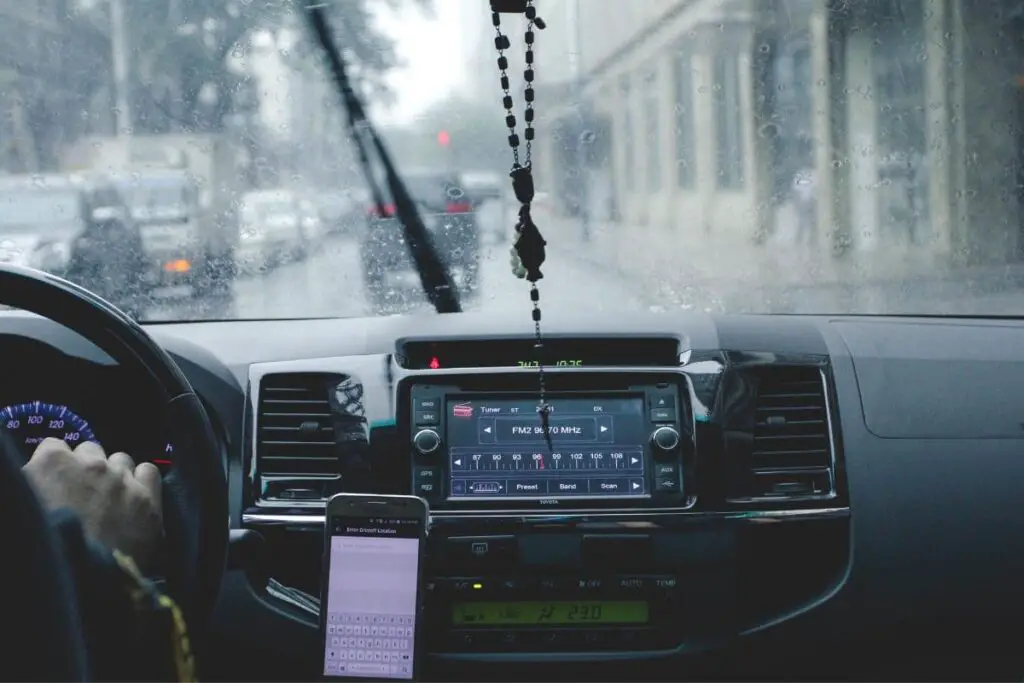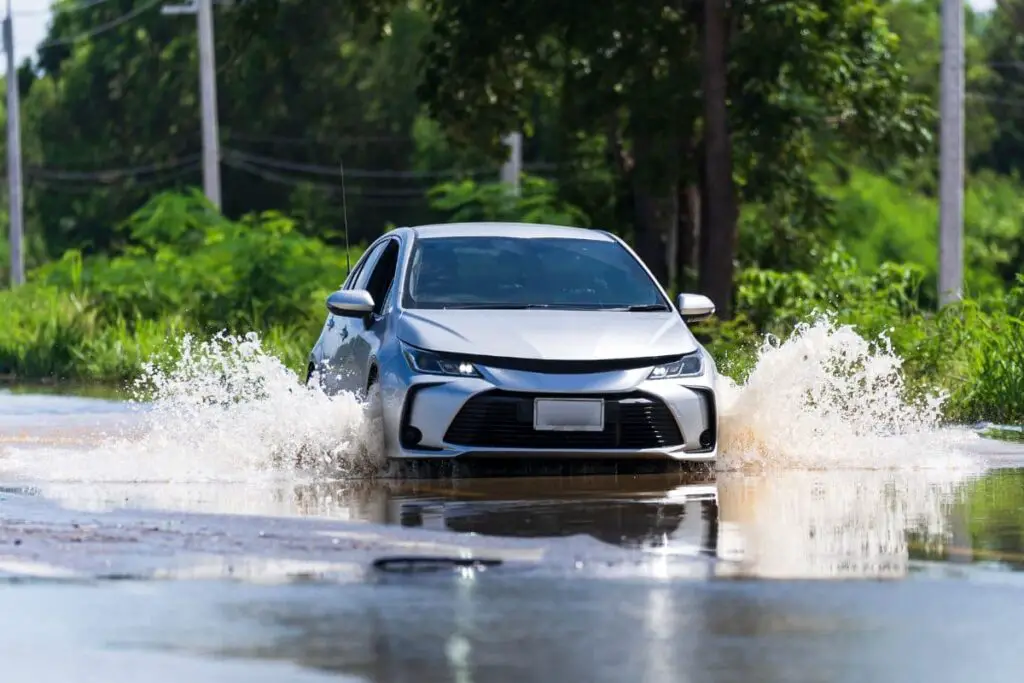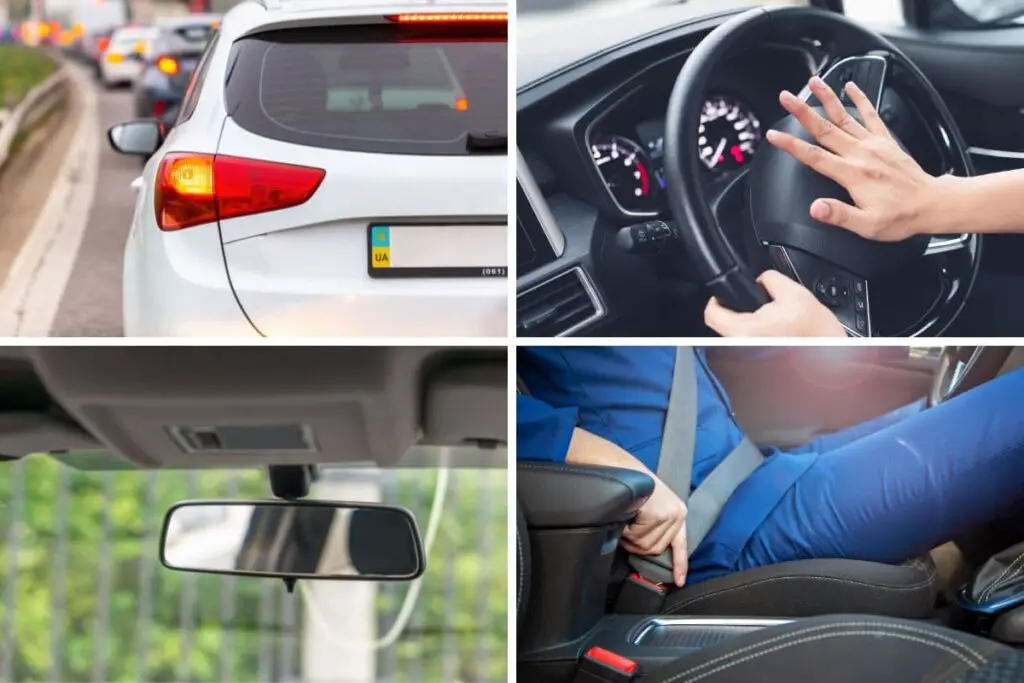As an Amazon Associate, we earn from qualifying purchases. We may also earn commissions if you purchase products from other retailers after clicking on a link from our site.
Taking your driver’s test in ideal weather is unquestionably more pleasant than in inclement weather. The very thought of taking a driver’s test in the rain can be unnerving, whether it’s forecasted or a surprise. Therefore, you may wonder if you can take your driver’s test in the rain or if it will be canceled.
You can take your driver’s test in the rain unless DMV examiners decide to cancel it due to severe weather that causes unsafe driving conditions. However, you should be prepared to drive in the rain, as you’ll be expected to take the test if the weather isn’t dangerous.
In this article, I’ll explain when you’ll be expected to take your driver’s test in the rain and when you cannot and share some tips to help you pass your driver’s test in the rain. Let’s get started!

DMV Examiners Will Not Give Road Tests in Unsafe Driving Conditions
The mere presence of rain isn’t the sole criterion DMV examiners use to decide whether to give road tests. The severity of a downpour and associated weather elements determine the safety of any driving condition.
If all you have is a drizzle, you’ll probably be taking your test, as most DMV examiners are unlikely to cancel road tests in light rain.
Here’s a good rule of thumb: If schools are open, you can expect the driver’s test to pan out as expected unless your local DMV office is closed.
That said, you should contact your local DMV office to verify if a scheduled driver’s test is still on when there’s a significant chance of extremely bad weather, such as:
- Flooding
- Bad thunderstorms
- Low visibility
- High winds
Some states will announce road test cancellations due to bad weather. If you are in New York, you can contact your local county office to know if a scheduled driver’s test is canceled. You can also follow relevant social media accounts for updates, such as @TxDPS for Texas on Twitter.
Some unsafe driving conditions are temporary. Therefore, a road test may get delayed but not canceled. This is entirely subject to the discretion of the DMV examiner.
How To Prepare for Your Driver’s Test if It’s Raining
Ideally, you should have some experience driving in the rain before a DMV road test, just in case you run into a storm on your test day.
Here’s how you should prepare for your driver’s test if it’s raining:
- Take everything slowly and steadily, even before you start driving your car.
- Check and turn on the headlights and wipers if it is raining at the time.
- Toggle the wipers among intermittent, low, and high, subject to the downpour.
- Use the rear wipers if the downpour affects your visibility.
- Always use rear wipers when backing up or reversing in the rain.
- You can use the defogger, defroster, or heater if the condition warrants it.
- Drive slowly with a bigger gap between your car and the vehicle ahead.
- Reduce normal speeds by 20% to 40%, depending on the severity of the rain.
- Turn slowly and take your foot off the accelerator before braking if it’s raining.
- Be conscious of standing water on the roads and the chance of hydroplaning.
In addition to the above tips, you should always drive slowly during the test whenever you spot a pool of water on the road. Normal speeds of up to 35 mph (~56 km/h) should reduce the risk of hydroplaning in most passenger cars.
If your car has new tires or the treads are nearly 8 mm deep, normal speeds shouldn’t cause hydroplaning.

Tips To Help You Pass Your Driver’s Test in the Rain
All the above preparatory and driving measures are mandatory during a road test in the rain. In addition to those, here are a few essential tips to help you pass a driver’s test if it’s raining:
- Don’t apply the brakes suddenly or with full force if your car hydroplanes. Instead, take your foot off the throttle or accelerator pedal until you regain control. Then, apply the brakes gradually until the tires are in full contact with the road.
- Stay away from enormous sprays of other cars, especially larger vehicles.
- Keep your distance from vehicles that speed over pooled or standing water.
- Steer clear from all cars speeding with intermittent braking on wet roads.
- Wipe the rear camera (if you have one) before you start your driver’s test.
DMV Examiners Will Likely Cancel Your Driver’s Test if Your Car Is Unsafe
Remember, DMV examiners can cancel a road test if a driver’s car is unsafe, irrespective of the weather and driving conditions.
Your vehicle must meet all the safety requirements, including the following:
- Working brake lights
- Working horn
- Intact rearview mirrors
- Functional seat belts

A few states or DMVs may ask for the latest annual inspection report for vehicle safety.
Even if your state doesn’t have such stringent requirements, your DMV examiner will likely cancel your road test in the rain if your car doesn’t tick the following checkboxes:
- Effective wipers
- Working defogger
- Working headlights
- Good, rain-safe tires
Therefore, you should prepare your vehicle for a driver’s test if it’s raining unless you wish to reschedule it.
Final Thoughts
Taking your driver’s test in the rain is far from ideal. If this is your first road test, it’s normal to be anxious. However, the DMV examiner may find no reason to reschedule. Therefore, you should prepare for the test and use the steps I’ve shared to pass your test with flying colors.
